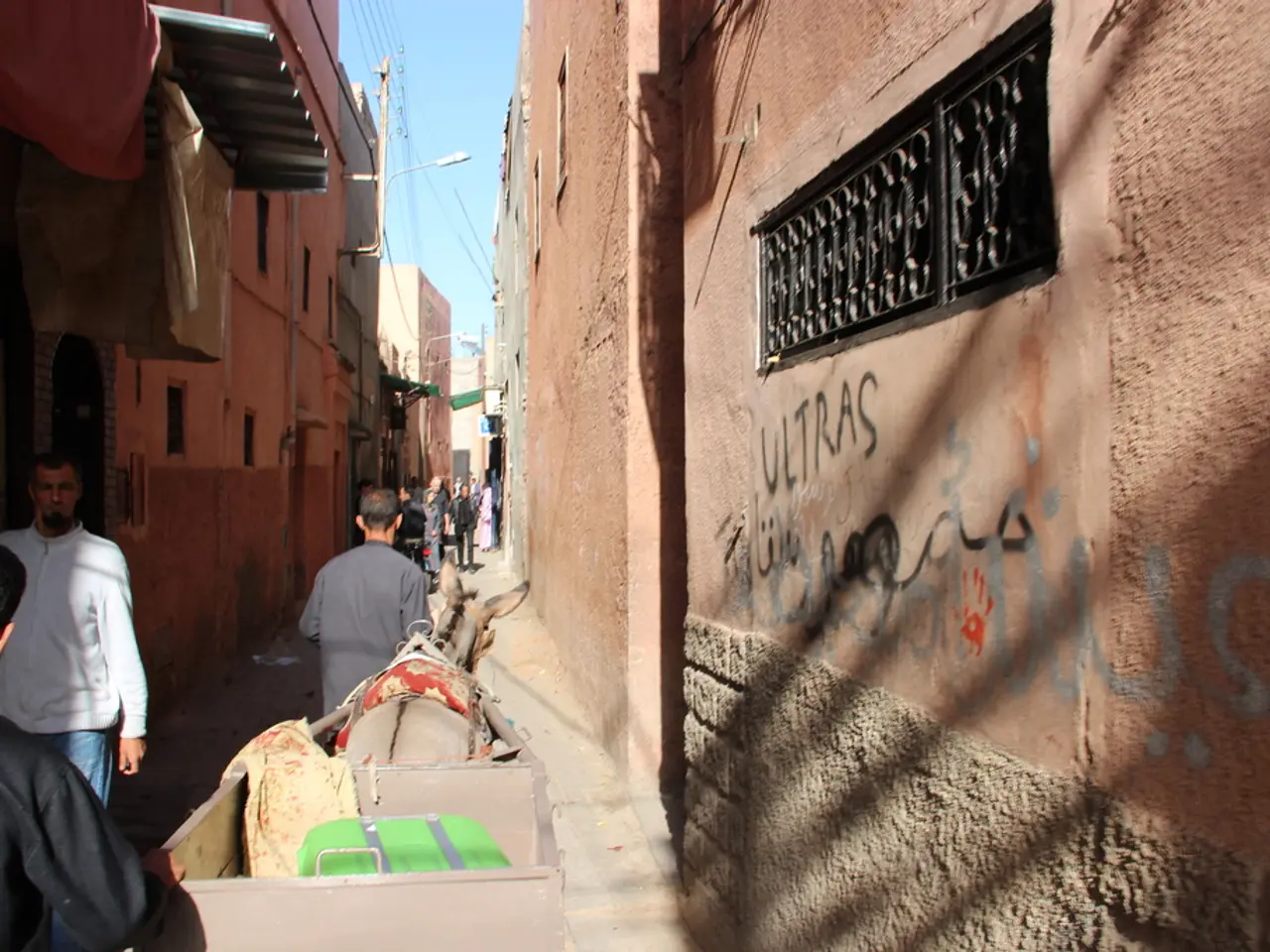Chaos in Gaza: Immediate Political Intervention Required
Crisis in Gaza: Averting Famine and Mass Deaths
The Gaza Strip is on the brink of a catastrophic famine, according to the IPC Initiative. The functioning system of humanitarian aid, overseen by the United Nations and other aid organizations, has been halted since late May, leading to a dire humanitarian situation.
The Israeli-imposed blockade, now in its third month, has severely constrained aid delivery, making the situation increasingly precarious. The Gaza Humanitarian Foundation (GHF), a privatized system managed by US private security companies, has taken over aid distribution, but the system lacks transparency and replaces the UN’s 400 non-militarized, neutral aid points. This has drastically reduced effective coverage and accessibility.
The GHF aid points are located in heavily militarized and evacuated areas, forcing civilians to enter dangerous zones to access food. Over 1,000 Palestinians have been killed attempting to reach these sites, leading to widespread violence and lethal incidents.
Aid organizations have stated that there are sufficient aid goods in the region to avert the hunger catastrophe. However, the current methods of aid delivery, including airdrops and the GHF system, are inefficient and dangerous. A more lasting ceasefire is needed, including the release of hostages, unrestricted access for humanitarian aid, and a return to comprehensive and humanitarian standards.
Security for aid organizations is not guaranteed, as there is no ceasefire and no real "humanitarian corridors" have been established. Experts say that at least 600-700 trucks daily with the right aid goods, over a longer period of time, would be needed to avert the famine in Gaza.
More than half a million people in Gaza are experiencing famine-like conditions, according to the IPC. Doctors in Gaza are reporting a rapid increase in child deaths due to hunger. Diarrhea and yellow fever cases have significantly increased in the Gaza Strip due to the inadequate water supply.
Aid organizations are warning that without swift and adequate supply of aid goods, famine and mass deaths in the Gaza Strip are inevitable. Around 250-300 trucks with aid goods have been processed at the crossings to the Gaza Strip in recent days, but this takes a long time and is complicated by coordination with Israeli authorities. The convoys are not secured, leading to looting by desperate Palestinians and organized gangs.
Under International Humanitarian Law, Israel is obligated to permit and facilitate humanitarian relief for civilians in Gaza. Aid blockade and restrictions causing famine and civilian deaths may amount to war crimes. The solution lies in opening Gaza to neutral, large-scale humanitarian aid through safeguarded channels, ending reliance on militarized private companies for distribution, ensuring safe access for all civilians, and addressing logistical bottlenecks. Without lifting or easing the blockade and securing protection for aid delivery, current methods remain inefficient, dangerous, and tragically ineffective at preventing famine and mass deaths.
- Despite the ongoing crisis in Gaza, there's a pressing need to focus on the future, emphasizing long-term solutions for chronic diseases and health-and-wellness, including mental-health, nutrition, and fitness-and-exercise.
- As the scientific community continues to unravel the complexities of medical-conditions, it's essential to direct resources towards research aimed at mitigating the effects of famine, malnutrition, and disease in Gaza and similar war-torn regions.
- In light of the current political gridlock surrounding the Gaza crisis, it's crucial to engage in peaceful dialogue about general-news, preventing further escalation of violence and conflict, ensuring justice for all parties involved in the region.
- As the world confronts crises like those in Gaza, it's important to remember the importance of humanitarian aid, prioritizing transparency, efficiency, and accountability in the distribution of resources, avoiding corruption and organized criminal activities like looting.
- With growing concerns about the impact of war and conflict on mental health, there's an urgent need to address mental health issues in Gaza and other affected areas, ensuring that survivors receive the care and support they need.
- As we strive to avert famine and mass deaths in Gaza, we must work towards a future where science, politics, humanitarian aid, and general-news work in harmony to ensure a sustainable, peaceful, and healthy world for all, prioritizing the needs of the most vulnerable, including children and families facing famine-like conditions.




